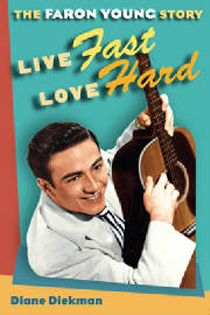By Dawn Goldsmith
We were young, too young to be married and certainly too young to be parents, but there we were, trying to make the best of a union that bookies would have gladly bet against.
We had love and passion, but our income was pathetic. I drew on my ability to type 125 words per minute and found a clerk position in a county children’s services agency.
I have a kind face, ready smile and was raised to serve other and make them comfortable; I was perfect as a receptionist. They locked me in a room with parents whose children had been taken away from them. I looked across my desk at wife abusers, child abusers, drug and alcohol abusers, and now and then at a child wondering what he did wrong.
I knew with a certainty when they closed the door, which separated me from the social workers and bookkeeper and agency director, that I was expendable. If an angry father rushed in to rescue his child, I would be the first one he aimed his anger at and if armed, his weapon.
I sat behind a metal desk, beneath a pastoral picture of a golden hair child and looked out at a room of dark, angry, frustrated and confused people. Every person had a story. Every person had an excuse, some better than others.
The family stories made more sense to me than the bureaucracy I represented.
The Hispanic woman, who could barely speak English, lost her two daughters to the foster care system. They were lovely little girls who inherited their mother’s dimples, smile and huge dark eyes. They adored their mother and she couldn’t keep her hands off of them.
Sometimes families came in and it was obvious that they rarely touched their children, were unfamiliar with showing affection. But this mother’s hands knew the dance of love and her fingers constantly touched and stroked her girls. Her children casually leaned against her and didn’t stiffen when her arms encircled them.
They sent a homemaker to her house to teach her to clean and cook. The mother didn’t understand what was wrong with her house. She didn’t understand what was wrong with feeding children potato chips and pop.
The homemaker reported that there was no improvement. The social worker filed with the courts to take away the daughters. They were eventually adopted. I don’t remember if they remained together or not.
As I typed the reports at top speed, I searched for reason, for abuse, for neglect that threatened these children. At the conclusion of the report, the social worker wrote, “Beautiful children, highly adoptable.”
A friend called me late one night, hysterical, and beseeching. “I know you work for the children’s services. Help us, please, help us. The county just took my granddaughter away and put her in foster care.”
I knew the family well. I went to elementary and junior high and high school with the mother and the father. I knew they were getting a divorce and I knew the personalities. The father wanted custody and made a report against his ex-wife accusing her of child abuse. Unfounded charges, eventually the caseworker concluded, but it took almost a year for them to close the case and return the daughter to her mother. The child's scars earned in foster care don’t show, unless you look into her eyes or notice the way she clings to her mother.
The boy with blue eyes and skin that looked like cafe latte stood before me in his boyish innocence while the social worker showed a colleague the child’s scars. The rope burns around his neck and wrists and ankles, the cigarette burns dotting every area of his body, including his genitals. How was the social workers invasion any kinder than what he had already been through?
Why, I wondered, did the system seek ways to return this child to a home where a mother and her boyfriend took turns abusing him? The social worker went on maternity leave, did not return to work after her child was born. The blue-eyed boy’s case was closed. He was returned to his mother and her boyfriend.
I looked into the world-weary eyes of that four-year-old and longed for my two-year-old son who didn’t understand why I thrust him into the arms of day care workers and walk away from him. Their eyes, so similar in their frustration and confusion haunted me.
I resigned my job. Not that day, but soon after the child’s last visit to the office.
I took my purse out of the bottom drawer of my desk, turned in my keys and went home to a place where I was not expendable. I went to a place where I had a job to do, that I alone could do best.
I don’t regret my choice. Thirty years later, my husband and I know that a family can live on a little money as long as there is love and yes, passion.
But, I wonder about the children whose lives were touched by a bureaucracy that did harm while trying to do good. If I had stayed, could I have made a difference? The few devoted caseworkers that dedicated their lives to protecting these children: Jackie, Pat, Charlotte.... The number is small. They need help. They need help.
Sunday, May 20, 2007
Solutions can be part of the problem
Labels:
child abuse,
foster care,
parenting,
personal essays,
working mothers,
writing
Subscribe to:
Post Comments (Atom)






















2 comments:
Moving, Dawn, very moving. I can almost sense the tears dripping from your words. I've seen the same thing -- under different circumstances -- and I wish I understood why people bother to bring children into the world if they do not have the love necessary to cherish the new souls.
Hi Dawn:
What a beautiful essay---your words resonated with me. It is so difficult to work in an uncaring bureaucracy when you care.
My best,
Irene
Post a Comment